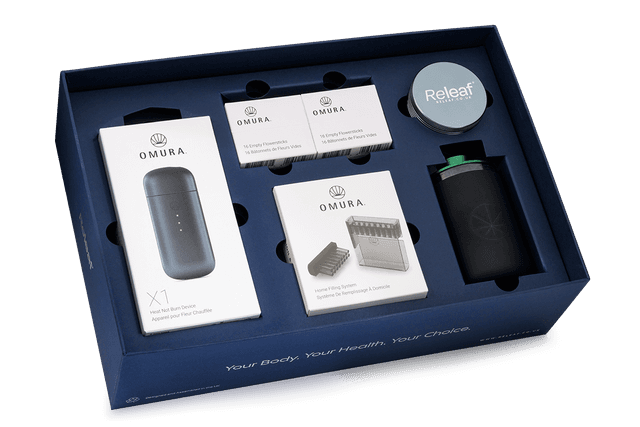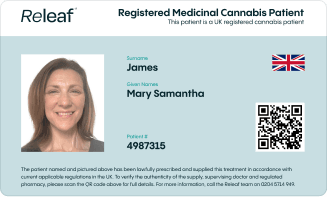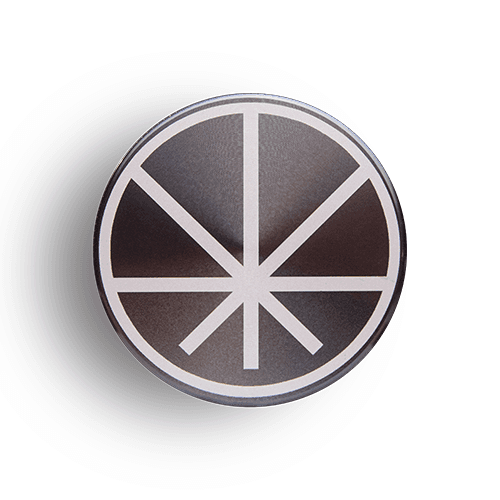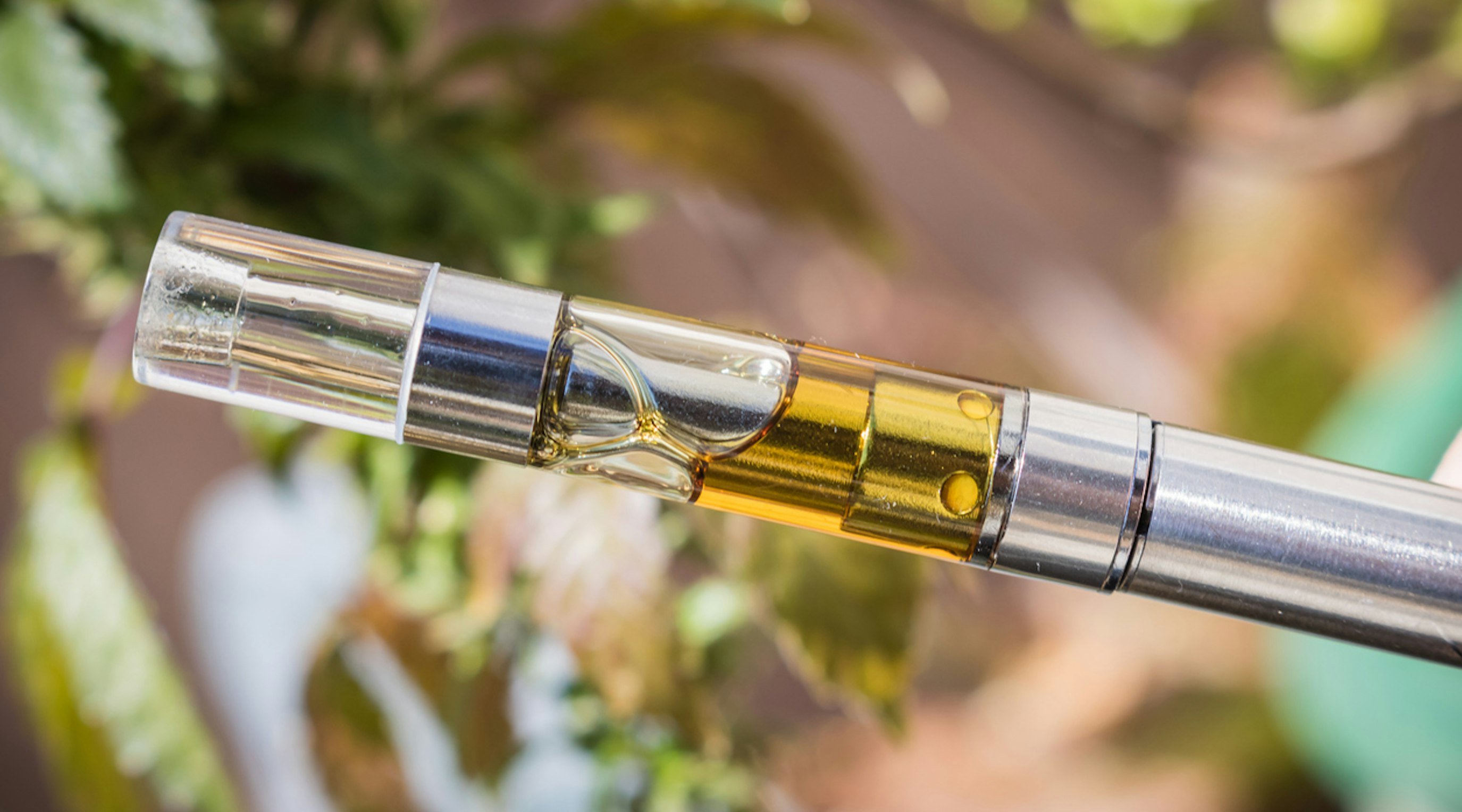What is THC?
THC is one of over 100 cannabis-exclusive compounds known as cannabinoids (also called phytocannabinoids). Its structure was first identified in 1964 by Raphael Mechoulam, whose subsequent research on THC and cannabis remains extremely influential.
Many cannabinoids are similar in structure to several compounds produced naturally in our bodies, called endogenous - or endo - cannabinoids. As such, THC and other phytocannabinoids are able to interact with our body’s endocannabinoid system (ECS).
The ECS is a receptor system that is expressed throughout the central nervous and immune systems. It is vital in maintaining homeostasis and regulating various cognitive and physiological functions. For example, the ECS has been found to play a role in pain signalling, mood, temperature, fertility, and much more!
What are the effects of THC?
THC is the primary compound responsible for the intoxicating and psychoactive effects of cannabis - that is to say, the “high” associated with cannabis use. However, THC has also been found to possess several therapeutic properties that may make it useful in treating a wide range of conditions and symptoms.
What are the medical benefits of THC?
As one of the most common phytocannabinoids, THC is among the most widely researched cannabis compounds. Nonetheless, the prohibition of cannabis that spanned much of the last 100 years means that much of our knowledge of THC and how it works in our bodies is still underdeveloped.
Thankfully, as the world once again begins to appreciate the potential of cannabis, a growing number of studies are exploring the medicinal potential of THC and other cannabis compounds. Current clinical and real-world evidence indicates that, in certain doses, THC may possess:
- Anticonvulsant potential: THC may help to reduce the frequency and severity of some kinds of seizures.
- Anti-emetic effects: THC has been found to help reduce nausea and vomiting in some patients. This may be helpful for patients undergoing chemotherapy.
- Anti-anxiety potential: Some evidence suggests that lower doses of THC may help to reduce anxiety in some patients; however, at higher doses, it may increase anxiety.
Other findings indicate that THC-based medicines may be beneficial for patients living with sleep disorders (such as insomnia), gastroenterological conditions (such as inflammatory bowel disease and irritable bowel syndrome), reduced appetite (e.g., patients with HIV/AIDS or wasting diseases), and some types of chronic pain.
What are the side effects of THC?
Of course, not everything is black and white when it comes to THC. Like many medications, this compound can be associated with some less desirable effects. For example, some THC side effects can include:
- Drowsiness
- Dizziness
- Anxiety and paranoia
- Memory impairment
- Cognitive impairment
- Dry mouth
- Increased heart rate
- Red eyes
THC also has a risk of addiction and abuse. However, the true effects of THC can vary significantly from person to person depending on a number of factors, including history of use, body weight, and the use of existing medications. For these reasons, cannabis-based products containing THC should always be administered under the advice and care of a healthcare professional.
How long do the effects of THC last?
Again, the time of onset and longevity of THC effects can depend on several factors, including the dose taken and the experience of the consumer, as well as things like environment and method of administration. However, the effects of THC typically last between two and six hours when inhaled (though they should lessen over time). When ingested orally in the form of edibles, these effects can last for much longer - potentially up to 12 hours.
CBD vs THC vs Delta 8 THC
If you’ve ever come across commercial CBD products or have heard about the potential medicinal effects of CBD, then you might wonder: what is the difference between CBD and THC?
What is the difference between THC and CBD?
Well, while both of these compounds are cannabinoids found in the cannabis plant, their structural differences make their effects distinctly different.
First of all, unlike THC, CBD is non-intoxicating (meaning it doesn’t cause the “high” associated with cannabis use).
The two compounds also have different therapeutic properties; however, some evidence indicates that these may be complimented by one another. For example, some studies indicate that administering CBD alongside THC may help to reduce some of THC’s unwanted side effects.
What is Delta 8 THC?
The term ‘THC’ is used to refer to delta-9 tetrahydrocannabinol - not to be mistaken with delta-8 tetrahydrocannabinol, otherwise known as delta-8 THC. In comparison to delta-9 THC, delta-8 THC is less abundant in cannabis and is therefore often manufactured synthetically in laboratories.
Furthermore, while the chemical structures of these two cannabinoids may be similar, their effects are slightly different. Both compounds are psychoactive, but delta-8 THC is less potent.
Laws and regulations around THC
Medical cannabis was legalised in the UK in November 2018. Under the new legislation cannabis-based medicines - including those containing THC - can be prescribed by a specialist doctor for the treatment of a wide range of conditions, providing the patient has been deemed suitable for these options.
Medical cannabis driving laws
As we have touched upon in this article, THC is an intoxicating compound that can impair your cognitive abilities. This means that medicines containing THC should be taken with caution and under the instructions of your prescribing doctor. This is particularly important when driving or operating heavy machinery.
So, what is the legal limit for THC while driving?
UK law states that it is illegal to drive while impaired by any drug, including THC - even if it has been prescribed for medical reasons. The current legal limit for THC while driving is 2 micrograms per litre (μg/L) of blood. Learn more about driving with a medical cannabis prescription in our recent article, ‘Medical cannabis, the DVLA and prescribed medicines’.
Ongoing research around THC
Despite significant developments in our understanding of THC and how it interacts with our bodies, several questions remain uncertain. Thankfully, research into THC - and medical cannabis in general - continues to grow year on year. For example, the Medical Cannabis Research Group at Imperial College London is continually assessing the potential of cannabis-based medicines for inflammation, cancer, and pain.
Final thoughts
Medical cannabis, including products containing THC, can now be prescribed in the UK for a wide range of conditions and symptoms. While our understanding of THC and other cannabinoid compounds is constantly evolving, further research is always needed. It is important to follow the guidelines set out by your prescribing doctor to ensure safe and effective treatment with THC-based medicines.
At Releaf, we’re dedicated to providing helpful resources to new and existing medical cannabis patients. So, whether you’re looking for a guide to using medical cannabis or more information about how to apply for medical cannabis - we can help. Get in touch with Releaf today to see if you could be eligible for a medical cannabis prescription.





